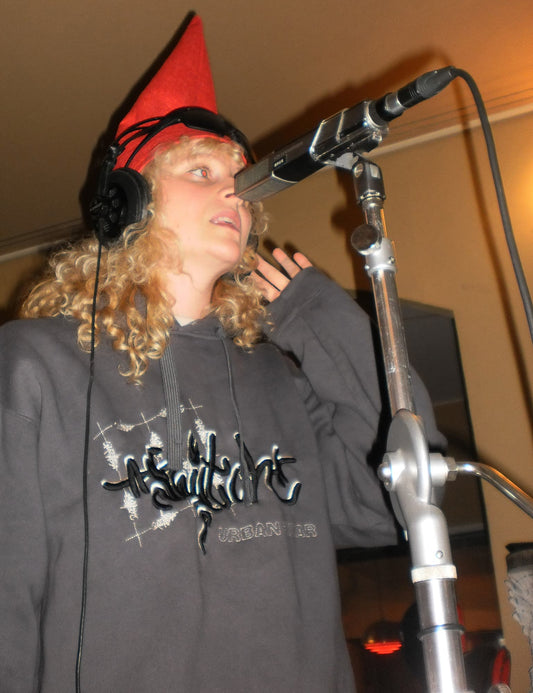Which study or job has had the greatest impact on the way you view life?
I started to study Assyriology at the University of Copenhagen in September 2005. I was twenty-five. Pregnant. Confused but happy. I lived in Vesterbro with my girlfriend at the time. We had a birth date of January 5 and she came into the world on January 9. I didn't want to go on maternity leave - I wanted to study: people in the world, myself in the world, and the world in me. Sometimes I sat with this little new life in my arms and nursed her when I had lessons. You get learning through the mother's milk.
What was your ambition in studying Assyriology?
I wanted to understand people, to understand why we tell and create the stories we do. And what is it that allows us to get people to believe those stories. It's crazy that people can be made to believe in a water god, let alone Donald Trump! In order to understand, I thought I had to start where people started telling stories, at least in writing. That's why I started Assyriology - the ancient history of Mesopotamia. Here I had to learn cuneiform: a completely new language (for me) and perhaps a completely new way of thinking, though in a way it turned out that people, back then were also just people, much like we are today. We are the only animal on the planet that creates the most absurd and engrossing narratives that create and initiate wars, love, conspiracies, religions and opinions. Because what the hell is the point of it all? At some point, after I had read enough texts, I realised that I also had to work in a more tangible way (though cuneiform itself is also quite tangible) but honestly, it became too philosophical, and so I started to study Near Eastern archaeology. Here you use material culture to study people and the systems we have created in order, ultimately, to be able to live, survive, experience pleasure, but also to develop ourselves.
What did you learn about yourself when you studied Assyriology and Near Eastern archaeology?
That I am just part of history. That I am not unique or something special. That I am everything and nothing at the same time. But I also learned how insane man is as an animal and that the only people we can learn from are each other. It is not because we teach nature anything. On the contrary, we destroy it so we can use it. We domesticate animals to become our best friends. We eat them. We destroy nature so we can be here. And after everything, it all ends with nature destroying us. It has done that before. But humanity is something of a survivor, so I wonder if we are building new systems and stories.
What did you learn about life?
That we live in a society LOL! But seriously, there is some truth to it. We live in a society that is a world champion in living and, at the same time, deceiving each other. But I guess that's the price of living in a society: even the premise that we let ourselves be deceived by each other's stories and of the tales of power. It's all basically just one long fiction, and the end for all of us, on an individual level, is when we die. On a larger level, I have no idea what it ends up being.
In what ways are your studies related to what you have dealt with since?
Now my daughter has turned 16, and in the years that have passed, I have always done the same thing, just through different media: journalism, fashion, the bereavement group. I have dealt with stories. With my own. With other people's. I have thought at times that my quest to understand is stretching myself a bit. I think there is a deeper point to it all. That there is a deeper meaning in man. With it all. There must be an explanation for why we do what we do, however, I have also recognised that it may not go deeper. That it's all just one thing or another: banal. That we just want to live the good life without experiencing too much pain. But still, we are world champions at inflicting exactly that on each other. Have you ever thought about when you meet an old friend by chance, on the street maybe, and they ask "how are you doing?” and you answer “good! what about you?” and the person answers "good," then the conversation stops just like that. The narrative stops. Then you might talk a little about how bad the weather is. Or how good it is. And then the conversation stops again. It's as if what we really can rally around is grief or pain. This is where we can fit into the world. With each other. Pain is glue. Joy is solvent.

